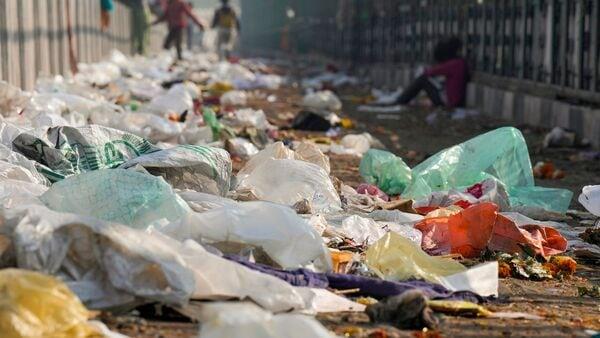
Global Plastic Pollution Conference INC-5 Ends With Major Disagreements Between Nations
The meeting between 175 parties was marked by a high degree of disagreement over whether the treaty should address the entire lifecycle of plastics and provide financial support from developed nations to aid developing countries in transitioning away from plastics.
On Sunday, India's ministry of environment, forest and climate change issued a statement saying it had proposed a standalone, dedicated multilateral fund to provide financial resources to developing countries to meet the plastic pollution challenge. India had put forth the proposal last Wednesday.
Making an intervention at the final plenary on Sunday, India reiterated the enormity of the challenge of plastic pollution, saying that no nation alone can completely resolve the issue.“We are moving towards sustainable plastic packaging, reducing the use of virgin material. At the same time, we cannot deny the important role plastic plays in development of our societies and in varied sectors of economy,” the statement said.
Also read | Rising raw material costs hit Indian plastic industryIndia emphasized the need to strike a critical balance between preventing the leakage of plastic in the environment and, at the same time, not affecting sustainable development, particularly of developing economies.
Some positivesThe Chair's Proposal, or the fourth version of the non-paper, released on Saturday represents a step forward in promoting the“start and strengthen” approach to negotiations on a global treaty to combat plastic pollution.
While the proposal omits some crucial elements like defining global criteria for chemicals of concern, it attempts to integrate these concepts into the criteria for addressing plastic products. The article on supply incorporates specific targets, which were absent in the previous version.
Additionally, the Chair's Proposal provides a comprehensive list of terminologies that need to be defined, offering clarity and precision to the treaty framework.
India stated,“Our approach to finalise the draft instrument should be based on mutual trust, cooperation and the spirit of consensus.” It stressed that consensus must be based on all decisions, including amendments in the instrument and its annexures.“Though India has some observations on the paper, we will be happy to further engage on it.”
Also read | Rising raw material costs hit Indian plastic industryAs some recommendations made by member states were not reflected in the current version, India sought reassurance from the Chair that member states will get an opportunity to get their views reflected during further negotiations.
“Abiding by the principle that nothing is agreed until everything is agreed, we look forward to develop a package agreed to by all, in a fair, inclusive and transparent manner,” India's statement read.
India further stated,“Any instrument, including our own, must have clearly defined scope. This has been left out from the new version. India would request to reinsert it.” It further conveyed that the scope of the instrument should be limited to addressing plastic pollution only without overlapping with the mandate of other multilateral environmental agreements and other relevant instruments and bodies.
India, home to 1.4 billion people, requested the Chair to consider inclusion of an article on Reservations on Annexures, as the shape and form of some articles can have trade implications. India also did not support inclusion of any list with phase out dates, which has not been reflected in the Chair's text.
Also read | Packaging is not the only plastic problem the global fashion retailers faceConsidering that the instrument must be implemented by member states, in a nationally driven manner, India demanded that due consideration to national circumstances and capabilities should be given.
Furthermore, provision of technical and financial assistance, including technology transfer to developing countries, is the key for effective implementation of the new instrument. Therefore, a stand-alone dedicated multilateral fund providing financial resources to developing countries for meeting incremental costs for their compliance obligations is required, India stated.
While all member states are working to develop the instrument, India has taken a series of measures, including banning some of short-lived plastic products and putting in place an ambitious and robust EPR (extended producer responsibility) regime on plastic packaging.
The backgroundIn March 2022, at the resumed fifth session of the UN Environment Assembly (UNEA-5.2), a resolution was adopted to develop an international, legally binding instrument on plastic pollution, including in the marine environment.
The resolution requested the executive director of the UN Environment Programme (UNEP) to convene an INC to develop“the instrument”, which is to be based on a comprehensive approach that addresses the full life cycle of plastic, including its production, design and disposal.
With the ambition to complete the negotiations by the end of 2024, the INC began its work in the second half of 2022.
The first session of the INC (INC-1) took place in Punta del Este, Uruguay from 28 November to 2 December 2022, followed by a second session (INC-2) from 29 May to 2 June 2023 in Paris, France, and a third session (INC-3) from 13 to 19 November 2023 in Nairobi, Kenya.
Also read | Centre to tighten eligibility criteria for state pollution board chairmanshipThe fourth session (INC-4) took place in Ottawa, Canada, from 23 to 29 April 2024, and the fifth session or INC-5 took place in Busan, South Korea between 25 November and 1 December.
Legal Disclaimer:
MENAFN provides the
information “as is” without warranty of any kind. We do not accept
any responsibility or liability for the accuracy, content, images,
videos, licenses, completeness, legality, or reliability of the information
contained in this article. If you have any complaints or copyright
issues related to this article, kindly contact the provider above.


















Comments
No comment